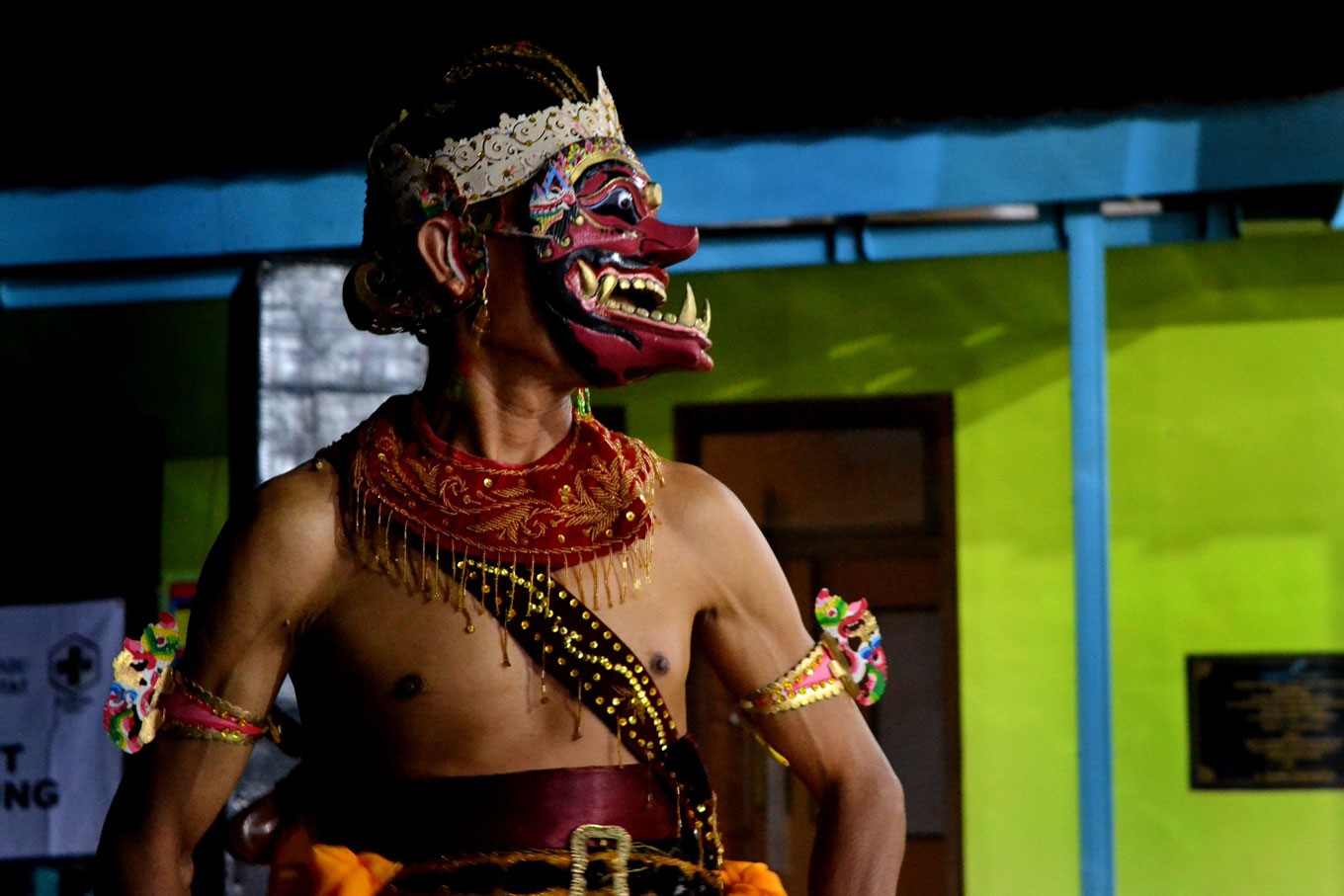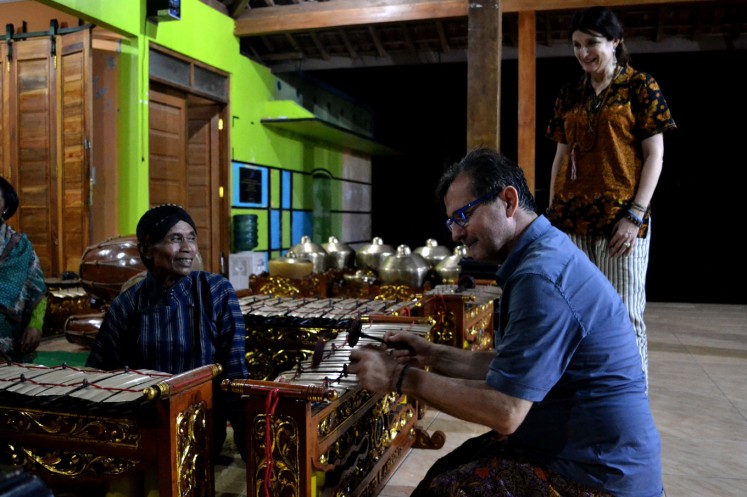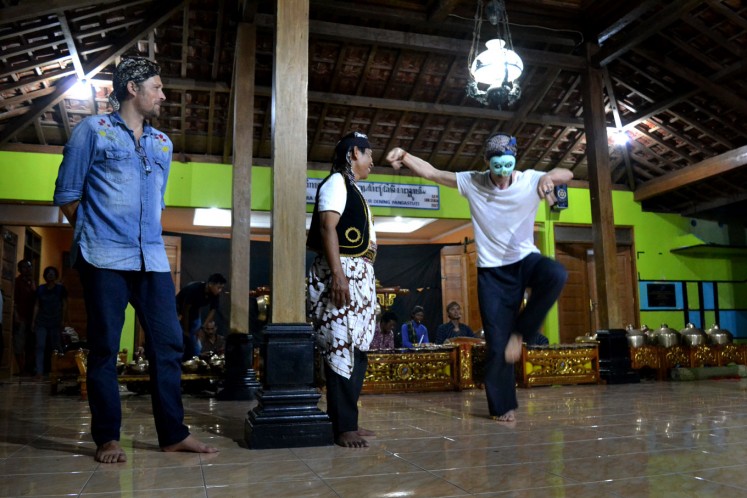Popular Reads
Top Results
Can't find what you're looking for?
View all search resultsPopular Reads
Top Results
Can't find what you're looking for?
View all search resultsFrench tourists enjoy Panji performance in Yogyakarta village
Change text size
Gift Premium Articles
to Anyone
B
obung, a small village in Bukit Pathuk, Gunungkidul in Yogyakarta seemed busier than usual, with residents preparing to welcome special guests to a performance of the Wayang Topeng Panji (Panji, masked puppet dance).
Sixteen tourists from France arrived in the village recently, in a stopover during a cultural tour exploring Yogyakarta and Karanganyar.
The group was led by Gorka Etxarri, a Frenchman who has also previously brought travelers to get acquainted with Javanese cultural and spiritual centers in the region.
Visitors got to learn how to play the gamelan. (JP/Stefanus Ajie)Etxarri was accompanied by Patrick van Hoebrouck, an anthropologist from Belgium who was the lead tour guide and translator for the group. Van Hoebrouck is already familiar with the area, as he has previously conducted research into Wayang Topeng Panji in Bobung and surrounding villages in Gunungkidul.
Traditional wooden masks, in particular, are a signature handicraft in Bobung village, which the group had come to observe.
The group of travelers was welcomed with a dinner at the home of a local resident, Sujiman, who with the help of fellow neighbors had prepared a special dish of nasi berkat (rice of blessings), which consists of nasi gurih (rice cooked with coconut milk), ayam ingkung (whole chicken) and urap sayur (vegetables).
Following the meal, the guests were treated to a performance of Wayang Topeng Panji by local artists.
Read also: Preserving the rare art form of 'topeng dalang' from Klaten
The show was opened by the Bobung village children performing Tari Topeng Dolanan Anak (children's play masked dance), which illustrates the joy of children playing traditional musical instruments.
The melody of gamelan then marked the beginning of the main show, as the dalang (puppet master) opened the story and the wayang dancers entered the stage one by one.
Each performer donned a mask of their character in the Panji Tales, specifically from the story of the romance between Panji Asmarabangun and Dewi Sekartaji.
Despite the show being delivered in the Javanese language, the foreign guests seemingly enjoyed the performance. The symbolic language delivered through movements and the expressions of the masks, as well as the accompanying soundtrack of the gamelan, helped interpret the story to the French audience.
Sujiman, who is also a professional mask-maker, was proud of the villagers' accomplishments in introducing local traditional arts to a foreign audience.
"The dancers from Bobung for the most part are already older, so maybe the dance was not as smooth as with regular wayang dancers, but I am very proud at how eager they were in presenting a good performance," Sujiman said.
He further expressed hope that the performance would increase interest among the youth to preserve the Wayang Topeng Panji and promote Bobung village as a cultural center abroad.
Aside from buying Panji masks as souvenirs, visitors to the village were also able to study the process of the making of the wooden masks, see the masks in use through the performances, as well as learn the dance with Wayang Topeng Panji performers. (liz/wng)









